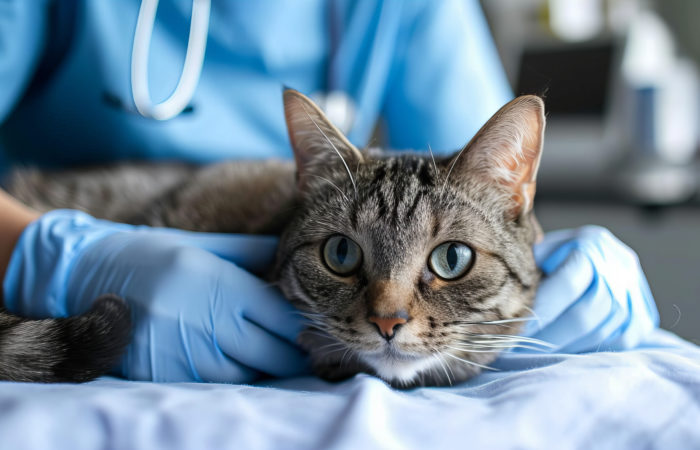Finding your way through small animal clinical practice
This course has been carefully created to provide a completely holistic approach to CPD for veterinary surgeons in small animal clinical practice. The course offers a comprehensive approach to continuing professional development (CPD) for veterinary surgeons practicing in small animal clinical settings. It caters to veterinarians at all career stages, with a particular focus on new graduates or those re-entering practice after a break. The course features a dynamic discussion forum where participants can ask questions and engage in real-time discussions as they progress through the lessons.
Led by Scott Kilpatrick, an EBVS and RCVS Recognised Specialist in Small Animal Internal Medicine, and Liz Bode, an EBVS and RCVS Recognised Specialist in Cardiology, the course features a line up of specialist speakers covering various veterinary disciplines. Topics include internal medicine, cardiology, anaesthesia & analgesia, dermatology, soft tissue surgery, ECC, ophthalmology, neurology, and clinical wellness.
This interactive course runs for sixteen-weeks and takes approximately 24 hours to complete. Access to this course is for 12 months in duration. The discussion forum will be monitored for the course duration only.
Course Content
- Review the logical approach to the patient with PUPD
- Understand the best ways to get the most out of your diagnostic tests… even when finances are limited, and you lack confidence using the ultrasound!
- Discuss what to look for when then more common causes of PUPD are ruled out
- Review the common reasons for coughing in dogs
- Understand how to differentiate between cardiac and non-cardiac cause of coughing
- What are the treatment options… more than just furosemide and steroids!
- Adopt a logical approach to the pruritic patient
- What do I need to do diagnostically… From scrapes to cytology
- Review the current treatments that help to reduce the itch
- Feel confident with common sedation and anaesthetic protocols
- Demystify the multiparameter monitoring… what do you really need to monitor?
- Learn how to troubleshoot common anaesthetic complications and challenges
- Assess and optimise radiographic quality
- Develop a system for looking at abdominal radiographs
- Recognise obstructive gastrointestinal patterns on radiographs
- Develop a logical approach to thoracic radiograph interpretation
- Identify cardiomegaly and specific chamber enlargement – when should you pay attention to increased sternal contact?
- Recognise various lung patterns and associated differential diagnosis
- Recognize the challenges in diagnosing Fever of Unknown Origin (FUO) in dogs and cats
- Identify common causes of FUO in dogs and cats and understand their diagnostic approach
- Explore treatment options for FUO in dogs, focusing on effective management strategies
- How to surgically approach the abdomen
- What are the common indications for an abdominal exploration?
- Understand how to deal with common surgical complications
- Discussed the diagnostic approach to the anaemic patient
- Learn about the most up-to-date treatment options for patients with IMHA
- What are the options for transfusion in practice … Xenotransfusion?
- Discuss the logical approach to the bleeding patient
- Understand what coagulopathies commonly affect our small animal patients
- Learn about the treatment options… from transfusion to tranexamic acid
- Learn advanced techniques to enhance your neurological exams
- Improve your ability to assess and manage neurological patients effectively
- Understand the latest strategies for evaluating and managing seizuring patients
- Explore diagnostic tools and tests to develop a practical approach in treating your neurological patients.
- Learn effective history-taking and examination techniques
- Understand how to implement owner-questionnaires and outcomes to grade disease severity and monitor clinical status.
- Improve your ability to identify and grade lameness through case-based examples, boosting your confidence in orthopaedic evaluations.
- The ophthalmic exam… what are you looking at?
- Spotting the most common ophthalmic conditions in practice
- Treatment…more than just a couple of drops
- Identify mindset and self-care techniques: Go from feeling like ‘spinning plates’ to keeping your clinical cool
- Understand neurophysiology, breathing techniques, gratitude, and delegation
- Tangible tips you can consider adding to your toolkit as a clinician
- Consider the reasons for hyperbilirubinemia
- Discuss how bloodwork can help us diagnose liver disease
- Consider what treatment options are available for acute and chronic liver disease
- Develop a systematic approach to interpreting electrocardiograms (ECGs) to improve diagnostic accuracy
- Gain confidence in recognizing and analyzing common ECG patterns seen in clinical practice
- Apply learned principles to real-life case studies to enhance ECG interpretation skills and clinical decision-making
- Review the most appropriate treatment for acute vomiting or diarrhoea cases
- Consider the diagnostic challenges of chronic gastrointestinal disorders
- Discuss the most up to date gastrointestinal treatment options
Meet the speakers
show
already purchased this course? login to your vtx account for access
login










